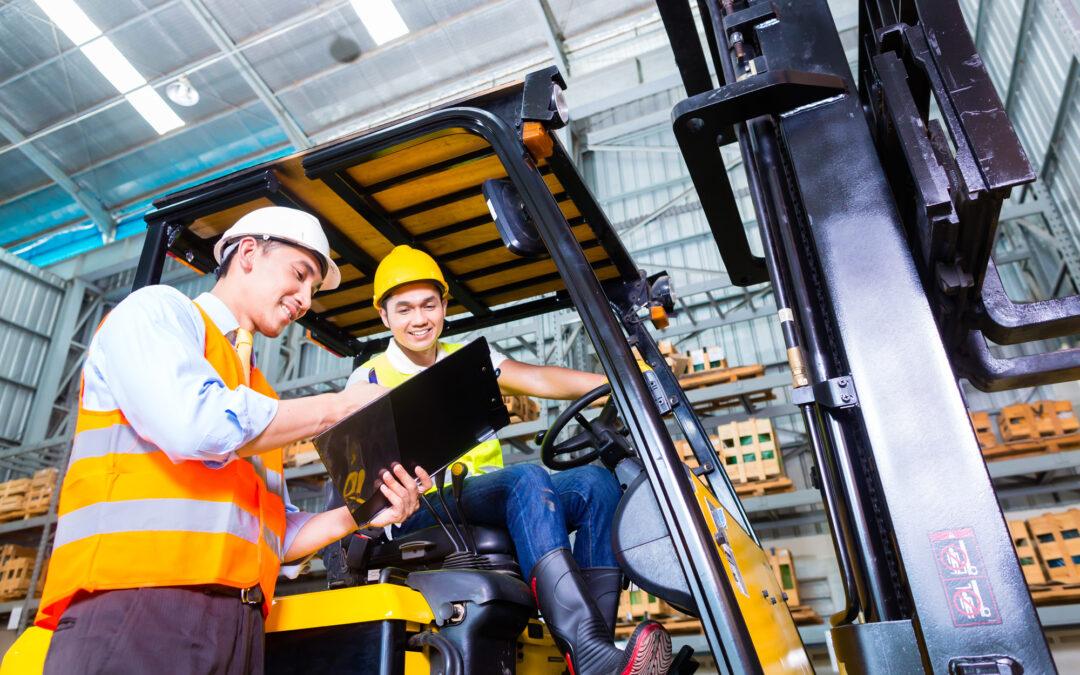Are you considering renting a forklift for your business needs? Whether you’re new to forklifts or just looking for a refresher, this guide will provide you with all the information you need. Learn more about weighing the advantages and disadvantages of rental, including where to find a forklift to rent and the costs involved.
Additionally, learn tips on caring for rented forklifts and get the tools to navigate the decision-making process that best fits your business.
Buying vs. Renting a Forklift
Purchasing a forklift may seem like a long-term investment, but it comes with several challenges. Forklifts can be expensive to buy outright, and they require maintenance, repairs, and storage space. Furthermore, technology and operational needs might change over time, making the purchase less suitable for the evolving demands of the business.
On the other hand, renting forklifts offers a host of advantages. It provides businesses with access to modern, well-maintained equipment without the hefty upfront costs. Additionally, renting allows for flexibility, as companies can choose different types based on the project’s requirements and scale up or down as needed. By opting for rental, businesses can allocate their capital to other essential aspects of their operations.
The Rental Process: How Does Renting a Forklift Work?
Rental forklifts are typically available from specialized equipment rental agencies or specific services. Some places permit online reservations, while others prefer a phone call to confirm rental details such as dates, forklift type, and jobsite location. Most dealers implement a similar process:
- Identifying Needs – Assess your specific material handling needs, including load capacity, lift height, and any additional attachments required.
- Rental Duration – Determine how long you will need the forklift, whether it’s for a short-term project or a long-term arrangement.
- Contacting Rental Companies –Research and reach out to reputable forklift rental companies in your area. Ensure they have a variety of models available to meet your requirements.
- Requesting Quotes – Request rental quotes from multiple providers to compare costs, terms, and services.
- Understanding the Rental Agreement – Carefully review the rental agreement to understand terms, insurance coverage, maintenance responsibilities, and potential penalties.
- Equipment Inspection – Before accepting the forklift, inspect it thoroughly to ensure it’s in good working condition. Note any pre-existing damage to avoid liability issues.
- Training: Ensure that your operators are trained and certified to handle the specific forklift model safely.
Do you need to rent a forklift for a short period of time? Or do you have a big project that requires a forklift and multiple attachments? Whatever your needs are, we have the perfect solution for you.
Key Factors to Consider in Forklift Rental
When renting a forklift, consider factors such as the rental duration, the type needed, operator training requirements, and insurance coverage. Ensure it suits the particular handling requirements of your job site location. Finally, evaluate the pros and cons of renting in detail.
The Benefits of Renting Forklifts
For example, renting a forklift comes with plenty of perks, such as
- Cost-Effectiveness – Renting eliminates the high upfront costs associated with purchasing forklifts, making it a more budget-friendly choice.
- Maintenance and Repairs – Rental companies are typically responsible for maintaining and servicing their fleet, reducing the burden on the renting business.
- Storage Concerns – Renting eliminates the need for storing forklifts during periods of non-use, saving space and associated costs.
Common Challenges With Forklift Rentals
On the other hand, businesses should anticipate occasional issues like:
Inadequate Safety Standards – Renting from a company that does not prioritize forklift safety or provide proper training can lead to accidents and injuries.
- Unreliable Equipment – Renting from an unreliable or untrustworthy provider might result in outdated or poorly maintained forklifts, leading to frequent breakdowns and operational delays.
- Hidden Costs – Some rental agreements may have hidden fees or unclear terms, resulting in unexpected costs.
- Lack of Support – Insufficient technical support and customer service from the rental company can hinder operations and productivity.
- Long Response Times – Slow response times for maintenance and repairs can significantly disrupt workflow and efficiency.
How to Avoid Issues With Forklift Rentals
Thankfully, businesses can avoid common forklift rental issues by considering various strategies that prioritize safety and communication. Business owners should start by thoroughly researching potential rental companies, reading reviews, and asking for recommendations to identify reputable and reliable providers. This ensures all agreements are clear, transparent, and free from hidden costs or ambiguities.
Additionally, they should choose a rental partner that emphasizes regular maintenance and quick, efficient support to minimize downtime. These companies tend to focus on operator training, safety protocols, and compliance with industry standards. Plus, most manufacturers and providers with customer service in mind have a wide range of forklift models, attachments, and rental durations to cater to their partner’s changing needs.
Finally, businesses should also hold themselves accountable regardless of renting or buying. Your staff’s safety should always be a top priority when operating any material handling equipment. Ensure operators are properly trained, always use safety belts, and avoid overloading the forklift beyond its load capacity.

